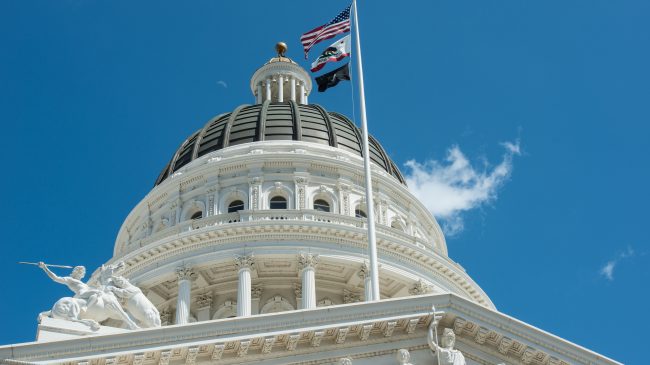When California Gov. Gavin Newsom first took office in January 2019, one of his first moves was to pay down part of the state’s unfunded pension liabilities. The California pension system has long been one of the key fiscal difficulties for state leaders. Former Gov. Jerry Brown implemented some important reforms, such as sharing pension costs between employees and employers and raising the minimum retirement age. Unfortunately, those reforms could take decades to produce impacts due to the so-called “California rule”, a 60-year-old California Supreme Court decision that prevents making reforms to the future pension benefits of current employees.
While Gov. Newsom has promised to pay down more pension debt, one move that could be especially harmful to the long-term solvency of California’s pension systems and retirees is pension divestment. California’s two large state-run pension plans, CalPERS and CalSTRS, have a fiduciary duty and legal obligation to their members to make decisions that are in the best financial interests of all of the pensioners within the system. In California, this may mean making investments that could be interpreted as going against social policy goals that the rest of the state government might have.
For example, in the most recent instance, activists have been urging CalPERS to divest from fossil fuel-related companies in order to align the pension system with the state’s broader goals and climate change actions. Fossil Free California, a climate advocacy group, recently published a study that argues CalPERS and CalSTRS would have actually earned more on their investments had they divested from fossil fuel corporations a decade ago. The study argues that the traditional energy sector has been the worst-performing sector in the S&P 500 for the last 10 years and the money invested in this sector would have generated an additional $11.9 billion for CalPERS had it simply been invested in the rest of the portfolio’s public equities.
CalPERS has criticized the report for “cherry-picking selective time periods to analyze investments and then making broad, sweeping conclusions.” The official position of the current CalPERS board is wisely against divestment because it “pits social responsibility against our fiduciary obligations.” That’s the correct position the board should take. Nonetheless, previous CalPERS boards have fallen prey to special interest groups looking to advance their positions at the expense of retirees.
For example, in the year 2000 CalPERS divested from tobacco stock and over the subsequent 17 years lost almost $3.6 billion dollars in investment earnings according to a report from Wilshire Associates, the pension system’s consultants. In addition, CalPERS and CalSTRS recently divested from two private prison companies. Both systems framed the move as a routine investment decision but the changes came on the heels of significant political pressure from activists.
Gov. Newsom has signaled his political support for fossil fuel divestment by announcing a Climate Investment Framework, which says the state wants to “leverage” its investment portfolio to advance “California’s climate leadership.” This Climate Investment Framework would “include a proactive investment strategy for the state’s pension funds that reflects the increased risks to the economy and physical environment due to climate change” and “provide the timeline and criteria to shift investments to companies and industry sectors that have greater growth potential based on their focus of reducing carbon emissions.” While legally non-binding, implementation of the framework seems to suggest a process that could eventually lead to recommending divestment.
Climate change is an important issue, but it’s not what pension systems should be engaged in. CalPERS, which has $139 billion in unfunded liabilities, is only around 70 percent funded — meaning the system lacks 30 percent of the funding needed to pay for retirement benefits that have already been promised to workers. As the pension costs needed to fund those benefits and make up the unfunded liabilities grow, it is likely to lead to additional crowding out of public services or prompt tax increases. Because it’s illegal to change pension benefits that have been promised to active members in California, lower investment returns would force California to divert more money away from other areas of the budget to pay for pensions.
CalPERS and CalSTRS should be focused on their fiscal duty of funding the pension benefits promised to their members. California is already taking significant action to fight climate change on a variety of policy fronts and its massive pension systems need to be able to make the investments they believe are most likely to fully fund the pension system. Forcing or pressuring California’s pension boards to divest from sectors for political reasons limits their options and risks threatening the financial futures of workers and taxpayers.
Stay in Touch with Our Pension Experts
Reason Foundation’s Pension Integrity Project has helped policymakers in states like Arizona, Colorado, Michigan, and Montana implement substantive pension reforms. Our monthly newsletter highlights the latest actuarial analysis and policy insights from our team.

